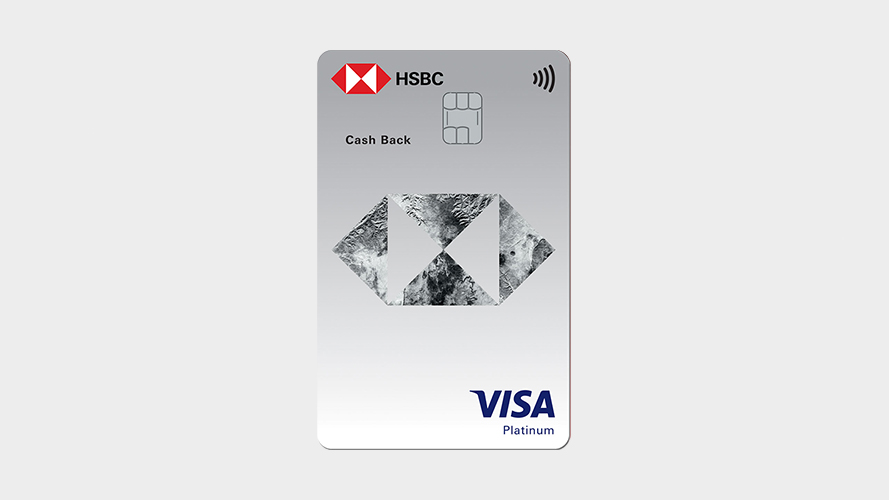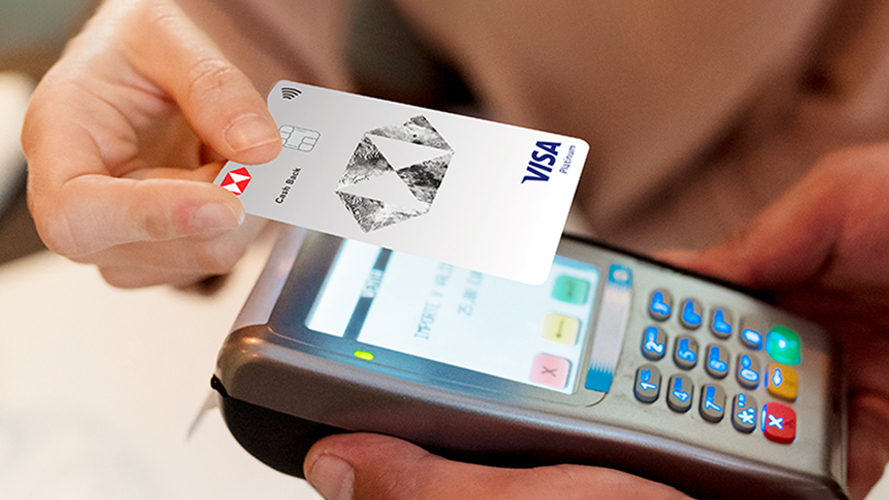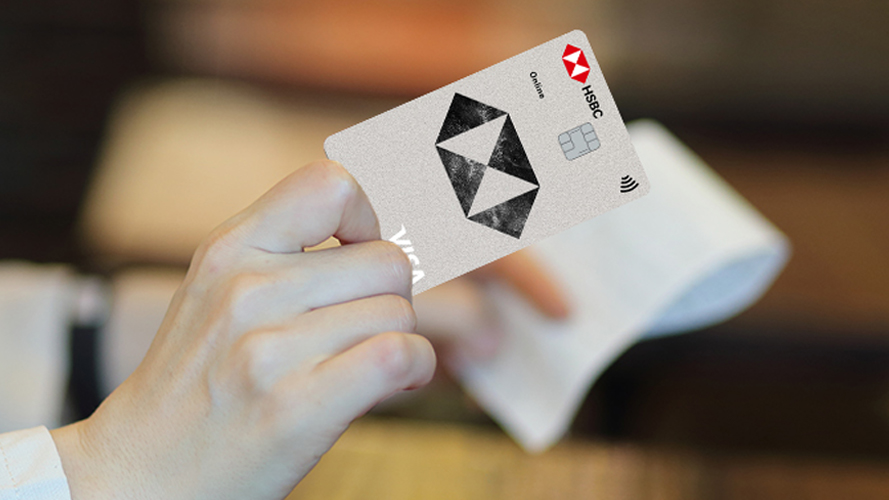
But that could end up being very expensive. Instead, consider these other options that could save you a lot of money in interest charges and financing fees.
A cash advance is when you take money out of the ATM using your credit card instead of your debit card or ATM card. The money you withdraw will be charged to your credit card instead of coming out of your current account or savings account.
You may find it useful in a pinch, especially if you need cash urgently, but there are some drawbacks.
Instant cash when you need it from almost any ATM
No matter where you are or when you need the cash, all you need is your credit card and an ATM. You can withdraw cash quickly and easily.
No complicated application forms or procedures
You don't have to fill out any loan applications or get approved. Your credit card is all the approval you need.

Pay no annual fee in the first year (saving VND 800,000) and get cashback of VND 2.2 million for new primary cardholders.

High cash advance fees
Credit cards have fairly high fees for withdrawal. Depending on the bank, it can be between 2% and 4% of the total amount you withdraw. As a result, the more cash you take out from the ATM, the more money you will have to pay.
Some cards even have a minimum withdrawal fee, such as VND50,000. You could end up paying more than 4%. For example, if you withdrew VND1 million, the minimum withdrawal fee means you would have to pay VND50,000 instead of the 4% charge of VND40,000.
What does HSBC charge for a cash advance?
High interest rates that are charged instantly
For normal credit card purchases, you'll get an interest-free period to pay off your bill. This could be up to 55 days, depending on your card company.
But with cash advances you get charged the full rate of interest (anywhere from 20% to 40%, depending on your card) from the moment you withdraw until the date you repay that amount (plus interest and fees) in full.
Limited borrowing amount
Even if you have a very high credit card limit, a cash advance won't allow you to withdraw that full amount. Most cards will only allow you to withdraw between 30% and 70% of your credit limit as a cash advance. That means there's a chance that a cash advance won't be enough to cover your urgent expenses.
Potentially high total cost
With the high credit card withdrawal fees and instant interest, even a small cash advance can quickly become a big expense. And if you're not able to pay back the entire amount in a very short time, that debt will continue to grow and can stay with you for a long time.
As you can see, the cons of a cash advance greatly outweigh the pros. So what to do if you find yourself short on cash? Fortunately there are some good options.

Using your emergency fund
Before you start thinking of investing or saving for big ticket items, you should start an emergency fund. There's no magic amount, but many financial experts say you should have about 3 month's worth of expenses set aside to cover unexpected costs.
You can start by setting up an auto deposit to transfer a small amount of money to a dedicated savings account each month. As that money grows, it will give you more confidence and help you feel more optimistic that you'll be able to handle a bump in the road without it being a major setback.
If you still don’t know how to start saving and building an emergency fund, you can read 8 saving challenges to start protecting your future.
Regular credit card spending
When possible, use your credit cards to pay for things, whether it's online shopping, utility bills or at the supermarket. That way, you'll be able to hold onto your cash to use in situations where cards are not accepted.
If you're going to use a credit card, your best bet is to always fully pay off your balance before it's due. This will let you avoid unnecessary charges and continue enjoying your card's interest-free period in the future.
Depending on your card type, as long as you pay back your debt within 45 days, you won't have to pay any interest. With some cards it's even better: the HSBC Live+ Credit Card, the HSBC Visa Cash Back Credit Card, and the HSBC TravelOne all have a 0% interest period of up to 55 days.
Credit card instalment plan
A credit card instalment plan is when you agree in advance to pay for a purchase over a set number of equal monthly instalments. If you have the option, try to find stores that are affiliated with your card's issuer for more savings. At HSBC we offer a few different instalment plans:
Explore more: How a credit card instalment plan works

Early withdrawal from a term deposit
A term deposit gives you a higher interest rate on your savings if you agree to leave your money untouched for a certain amount of time (say, 6 months, a year, etc).
You can withdraw money from your term deposit anytime you want, but if you withdraw it sooner than you agreed, you'll only receive the standard interest instead of the preferable rate, or lose all the interest earned.
This is not an ideal solution, but it could still be a cheaper option than taking a cash advance. Each situation will be different, so you should do the math to figure out if it's cheaper to pay the early withdrawal fee or pay the cash advance fee and interest charges.
An overdraft on your account
Overdraft is when a bank allows you to overspend on your account up to defined maximum amount to make transactions on your current account.
Depending on your income, credit rating, and other factors, your bank can offer you a predetermined limit for an overdraft loan if your account balance reaches zero. If that happens, you'd only have to pay interest on the outstanding balance of the overdraft loan.
Overdrafts are usually a better short-term solution in an emergency than cash advances not only because of their lower interest rate, but because they can often provide you with a higher loan amount as well.
A personal loan
You can use a personal loan for different personal expenses, including home furnishings, renovations, travel and education.
Many personal loans don't require any type of collateral and still let you borrow a fairly large amount with repayment terms from 12 to 48 months. Usually, to be eligible for an unsecured personal loan, the financial institution will assess your credit rating and verify your application to ensure your ability to repay.
Steer clear of illegal cash advance services. Some merchants will offer to charge your credit card for a fake purchase and give you the equivalent value in cash, minus their service charge.
Anyone suspected of performing fictitious transactions may be fined up to VND150 million by the authorities. In addition to a fine, banks reserve the right to cancel your card immediately if they detect this suspicious activity on your card.

After looking at the pros and cons and other options available, it's clear that you should avoid using a cash advance unless absolutely necessary. If you find yourself in a pinch and need cash in a hurry, consider the following:
If you need any financial support, talk to us. We might be able to help you find a solution that will give you more financial stability.
For an HSBC cash advance, you'll be charged a 4% (minimum VND50,000) cash advance fee plus interest rates depending on the card you're using.
Interest rates may be changed from time to time in accordance with the local regulatory requirements.
In addition, there might be extra fees if you use an ATM that is not in the HSBC network. Overseas withdrawals will also have foreign transaction fees of 1.99% to 3.75% of the transaction amount.
Stay ahead of your finances with an interest-free period up to 55 days from our credit cards.
Important information: All fees and interest in this article are for reference only. For the most specific, accurate and up-to-date details on fees, interest and calculation of HSBC credit cards, please refer to the Fee Schedule, Credit Card Agreement and Terms of Use. Other relevant Terms & Conditions are publicly posted and regularly updated on the HSBC website (Vietnam).









